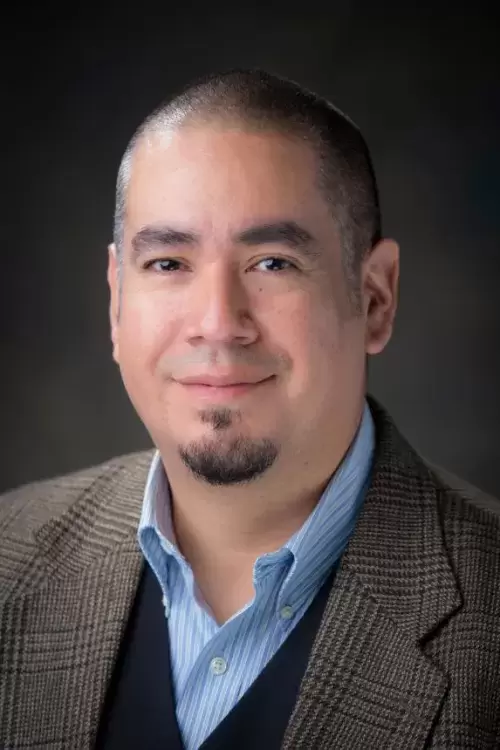Feeling driven by his experience working in the band office, Ahousaht First Nation member Cliff Atleo Jr. powered his way through the academic ranks, and today stands proud holding a PhD from the University of Alberta. During the early 2000’s, Atleo Jr. worked on a variety of resource management projects and treaty issues, giving him valuable insight into Nuu-Chah-Nulth economic practices. After studying politics and the economy for his undergraduate degree, he then chose to put his insight to work. His PhD is aptly titled, “Change and Continuity in the Political Economy of the Ahousaht.”
“I started college in 1991, right out of high school,” said Atleo Jr. of the first time he attempted post-secondary schooling. “I failed all my classes except one, then I dropped out and worked for 12 years.”
“I went back in 2006...I was a mature student in my 30’s, and I had a much stronger sense of what I wanted to do,” he continued. “I think when I add up everything, I’ve been in school 27 years, including kindergarten.”
Atleo says the cause of his poor grades was “a girl”—a relationship, really, that served as a distraction for him. Because it was long distance, he spent a lot of time travelling back and forth, and lost focus. But perhaps it was a blessing in disguise, because the jobs he found thereafter profoundly impacted his path.
For his master’s thesis, he spent time researching the progressive economic development of the Nuu-Chah-Nulth people. For his PhD, he specifically focused on what’s been happening with Ahousaht.
“My conclusion for the whole thing…this is where my political science background comes in…I try to identify neoliberal capitalism as a most recent era,” he explained, bringing to mind the ancient story of the two nations at war, and one defeating the other through deceit. “From an internal perspective, we’ve been experiencing changes going all the way back to Captain Cook in 1778, but this recent change is more significant…it’s like a Trojan horse,”
This has been the effect of colonialism, according to Atleo Jr. The changes have been a move away from collective care of one another, and more into an emphasis on the economic market itself. Most notably, this has resulted in the decline of the fishing lifestyle, however the changes from that were more the result of government imposed regulations, and the people being forced to adapt.
Yet it isn’t all bad, and Atleo has made an effort to look at the positives, as well.
An excerpt from the abstract of his PhD thesis paper, reads:
“Along with our lands, waters, relatives and resources being assaulted via settler colonialism and neoliberal capitalism, our identities and cultures remain targeted for erasure or irrelevance. Through my research, however, I have discovered an unexpected resilience, especially with respect to our traditional governance systems, which began a concerted revival at the end of the twentieth century.”
“My second last chapter is where I’m trying to identify positive resurgence in the community. But they’re not in the economic realm,” said Atleo. “Examples are language, campaigns to address community violence, individual examples of reconnecting with the land again, and one other is small-scale agriculture.”
Atleo is also interested in turning his PhD thesis into a book, so interested readers may have a chance to discover the work on their own. He recently submitted a proposal to the University of Washington Press. The book will be aimed at a diverse audience, not just for academics.
Atleo Jr.’s father, Cliff Atleo Sr., past president of the Nuu-chah-nulth Tribal Council, is proud of his son for the work he has done, and he is equally happy to see the academic system becoming more accommodating for First Nations students. Atleo Sr. attended the University of British Columbia in the early 1960’s when he was one of only seven indigenous students there. The only support they had was one young woman from the department of Indian Affairs who checked in on them once a month, he said.
“There was very little support for indigenous students. Nothing like it is today. I marvel at the support students get today,” he said.
Atleo Sr. was able to witness his son’s PhD thesis defence, which was an interesting experience for him, because he was so familiar with the subjects in discussion. Having worked directly with various resource projects himself, including participating in negotiations with the government about a Clayoquot Sound logging project in the 1990’s, he found it difficult to hold his tongue while his son did the speaking. But he enjoyed watching, he said.
“He did awesome,’ he said. “I thought the committee as pretty good in terms of how they asked the questions and the kinds of questions…He got an A+ from his dad.”
NTC current president Judith Sayers released an open letter congratulating Atleo Jr., as well. She feels his accomplishment can serve as an example to young people in the Nuu-Chah-Nulth communities. And she believes the topic of Atleo’s PhD is one that can have some practical application, as well.
“It’s not easy getting through academia when the academic system is not meant to - or has never - reflected indigenous ways,” said Sayers.
“I think he (Atleo) is a good role model for students in high school…that it is possible to reach for the stars, and get your doctorate and move forward as a recognized scholar,” she added. “University isn’t as scary as it might seem.”







